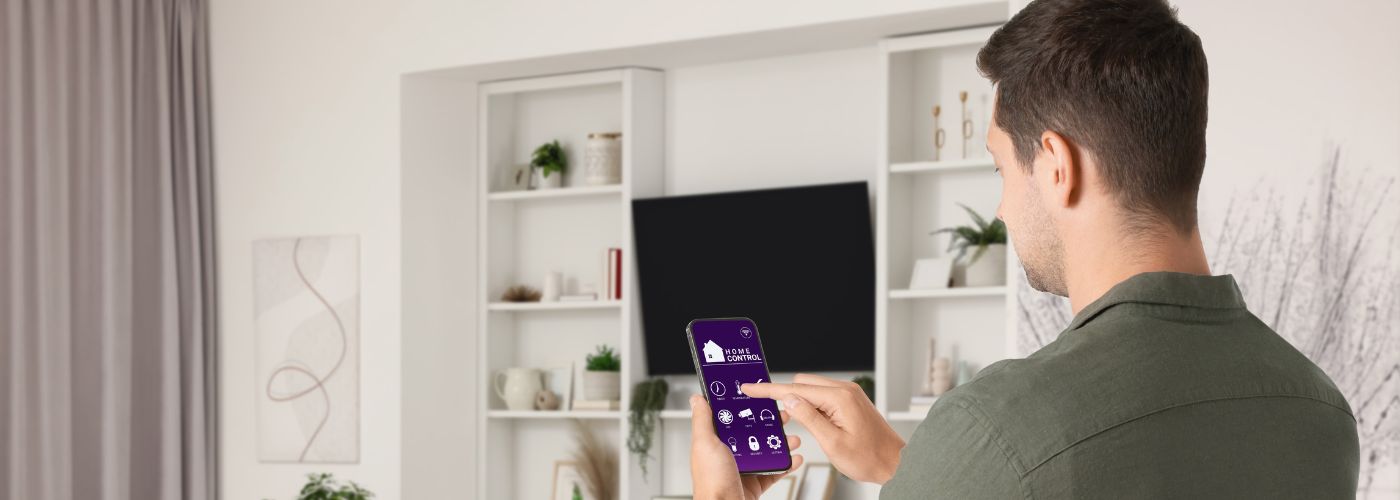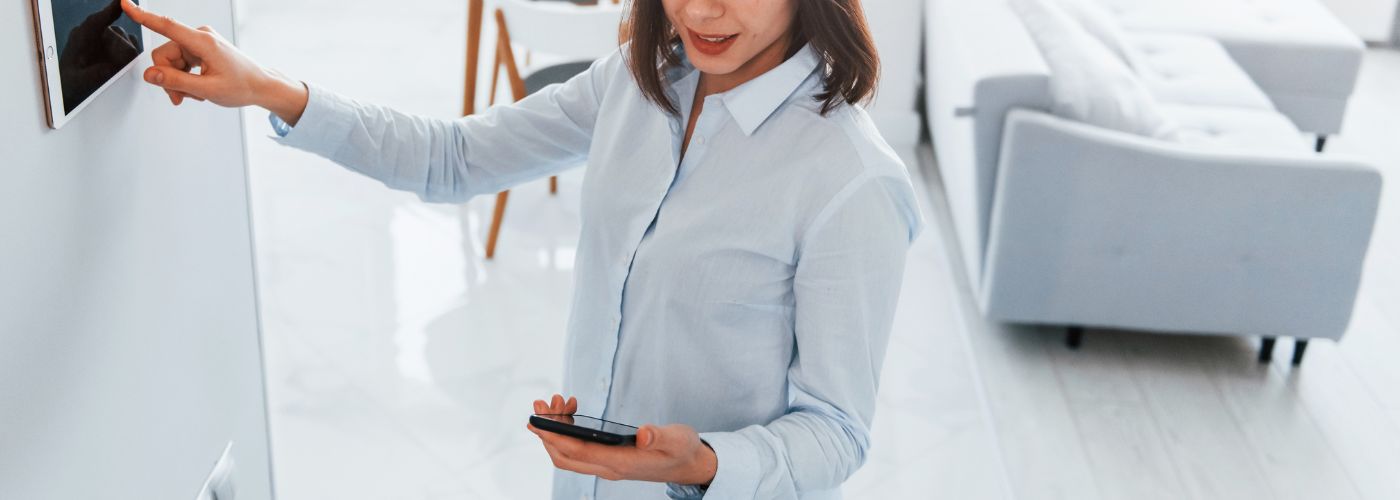In a world where convenience is king and technology reigns supreme, the notion of transforming your home into a smart haven has never been more appealing. In this article, we’ll explore the differences between DIY vs professional home automation installations. Let’s help you determine whether to roll up your sleeves for some hands-on tinkering or sit back and let seasoned pros do their magic!
What’s Better DIY vs Professional Home Automation Installations
The decision between DIY installations vs professional home automation installations is based on personal preferences and technological prowess. While tackling a DIY project can be an exhilarating way to learn about smart technology, it also carries risks such as compatibility issues or system malfunctions.
A sense of accomplishment and customization is undeniably appealing for some; however, this approach may lead to significant troubleshooting down the road if you’re not well-versed in the intricacies of network configurations.
On the other hand, professional installations ensure that your systems are not only expertly configured but also optimized for performance and security. Professionals bring a wealth of experience that can preemptively address potential pitfalls you might overlook—like interference from other electronics or inadequate wireless coverage.
Furthermore, investing in a professional service often includes ongoing support, which can save homeowners time and stress when making future updates or expansions.
Pros of Professional Home Automation Installations
Choosing professional home automation installations over DIY approaches offers several compelling advantages that can significantly enhance your living experience. Firstly, experts bring a wealth of knowledge and experience to the table, ensuring that all components are seamlessly integrated for optimal functionality.
This means that rather than dealing with the often frustrating trial-and-error process inherent in DIY projects, homeowners can enjoy a streamlined setup tailored to their unique needs and preferences from day one.
Moreover, professionals stay updated on the latest technology trends and best practices, offering insights you might not encounter while navigating online tutorials or forums. Their ability to forecast future compatibility issues means they can recommend scalable solutions that evolve as technology advances—preventing costly upgrades down the road.
Cons of Professional Home Automation Installations
One of the primary drawbacks of professional home automation installations is the substantial upfront cost. While DIY solutions might offer an appealing lower price point, sanctioned systems come with labor and design fees that can quickly escalate, making tech-savvy homeowners pause.
This initial investment may not always translate to a proportional increase in property value or energy savings, leading to potential financial regret. It’s essential for homeowners to realistically evaluate whether the convenience outweighs the cost associated with hiring skilled professionals.
Moreover, reliance on third-party services can lead to issues of dependency. Homeowners who opt for professional installations may find themselves tied into lengthy service agreements or left vulnerable if the company goes out of business. This could mean limited support options down the line and difficulty troubleshooting problems without expert assistance.
However, this is why many people lead towards brand name smart home systems like Control4 since it is widely used within the industry and can be installed and worked on by most licensed technicians.
Benefits of DIY Home Automation Installations
One of the most compelling advantages of DIY home automation installations is the empowerment it offers homeowners to tailor their environments according to personal preferences. Unlike professional installations, which often follow a one-size-fits-all approach, DIY projects allow for a highly customized experience.
You can experiment with different technologies and configurations without the pressure of adhering strictly to professional standards or budget constraints. This hands-on engagement not only fosters creativity but also helps to understand what’s customizable in a smart home system.
Another significant benefit is cost efficiency. By embracing the DIY route, you can save on labor costs associated with hiring professionals. Many readily available tools and resources have made it easier than ever to set up smart devices without prior technical expertise.
Moreover, as technology continues to evolve rapidly, staying ahead can feel daunting; however, taking charge of your home tech allows you to learn about new products and systems firsthand — enhancing both your knowledge and adaptability in an increasingly digital world.
The satisfaction you can see from DIY vs professional home automation installations!
Negatives of DIY Home Automation Installations
One of the most significant drawbacks of DIY home automation installations is the potential for compatibility issues. With a myriad of devices from different manufacturers, integrating them into a cohesive system can feel like piecing together an intricate puzzle.
Unlike professionals who have deep knowledge about various products and their interoperability, DIY enthusiasts often find themselves spending hours researching and troubleshooting incompatible technologies. This not only leads to frustration but may also result in subpar functionality that could undermine the entire automation experience.
Moreover, safety concerns cannot be overlooked in the rush to automate your home. While it’s tempting to cut costs by skirting professional assistance, improper installations—especially involving electrical systems or security features—can expose homeowners to risks they might not anticipate.
Mistakes like faulty wiring can lead to serious hazards including fires or intrusions due to inadequate security measures. These are some of the many negatives of DIY vs professional home automation installations.
Who To Call For Home Automation Systems?
When considering home automation systems, the choice of whom to call is paramount for ensuring a seamless integration that enhances your lifestyle. Start with home automation specialists who not only understand the technology but also appreciate your unique vision.
These professionals often conduct initial assessments to tailor solutions that enhance convenience and security, from automated lighting configurations to advanced climate control systems.
Local electricians with experience in smart home technology can also be valuable allies. They possess essential electrical knowledge combined with an understanding of how different systems work together, enabling them to troubleshoot potential issues effectively!
Overall, keep all of these tips in mind when consideringDIY vs professional home automation installations.



More to Read
Top Smart Locks For Homes
Are you still using a standard key to lock your door? It might be time
Jul
How To Keep Your Home Safe During Traveling
Have you ever returned from a dream vacation only to discover your home has been
Jun
Mistakes To Avoid With Smart Home Theater Installations
Have you ever felt overwhelmed by the options when creating your perfect home theater? You’re
May